Buy yours here: https://www.etsy.com/listing/1769361371/palestine-will-be-free-in-japanese-and
"They’re violent in Korea, they’re violent in Germany, they’re violent in the South Pacific, they’re violent in Cuba, they’re violent wherever they go. But when it comes time for you and me to protect ourselves against lynchings, they tell us to be nonviolent." - Malcolm X
https://scheerpost.com/2024/02/22/the-prophecies-of-malcolm-x-zionism-is-a-new-kind-of-colonialism/
Sam Husseini (https://twitter.com/samhusseini)
ICCを「帝国主義国家に奉仕する超国家機関」と非難したのは、ハーグに本拠を置く裁判所が、ウクライナでの戦争犯罪容疑でロシアのウラジーミル・プーチン大統領と別のロシア当局者に逮捕状を発行した2日後だった。
プーチン大統領に対する訴訟の提起、議論、その後の具体的な行動の速さは、西側寄りの法廷の誠実さ、バランス、政治的議題について多くの疑問を引き起こした。
パレスチナ人は、イスラエル戦争犯罪者とされる人々を子供用手袋で扱い続けているICCの偽善に即座に、そして正当に抗議したが、イラク人、アフガニスタン人、そしてほとんどがアフリカ人の活動家や知識人は、ICCの道徳的矛盾は非難すべきものであると感じた。
設立以来21年間、「ICCは米国や欧州の大統領、首相、君主を国家元首として一度も逮捕状を発行したことも、起訴したことも無い」とアフリカ最古の共産党が抗議し、多くの人々の叫びに同調した。 アフリカがICCの捜査と逮捕状の大部分を受け取っていると長年指摘してきた組織、政治家、活動家たちだ。
実際、2002 年の設立以来、ICC はアフリカに「執着」してきました。 2021年6月の時点で、「裁判所が起訴した44人全員がアフリカ人」であり、「現在行われている14件の捜査のうち10件がアフリカに関するものである」とクマル・バ氏はフォーリン・アフェアーズ誌に書いている。
この議論はアフリカを全面的に擁護するものではありません。 アフリカ大陸では、実際にはグローバル・サウスの他の地域でも、多くの戦争犯罪が行われているとされており、その多くは新旧の内戦、政府による大規模な弾圧、暴力的な弾圧に関連している。
しかし、数多くの、そして時にはそれ以上の陰惨な戦争犯罪や人道に対する罪が西側諸国政府と関係しているのに、なぜアフリカが例外とされなければならないのでしょうか? イラクとアフガニスタンでの西側戦争だけでも数十万人(一部の研究では数百万人を示唆する研究もある)が死亡し、そのほとんどが民間人である。 これらの戦争の結果は地域全体を不安定にし、大量虐殺などの他の犯罪を引き起こしました。
これらはどれも本格的に法的に追及されていません。 アフガニスタンでの戦争犯罪疑惑を捜査しようとしただけで、トランプ政権は当時のICC首席検事ファトゥ・ベンソーダ氏やその他の裁判所関係者に制裁を課す大統領令を出した。 米国はICCの加盟国ではないが、法廷にいる西側同盟国は、アフガニスタン戦争の章が二度と開かれないことを保証している。
アフリカ、中東、アジア、実際にはグローバル・サウス全体が激怒する権利があります。
しかし、この偽善は戦争、政治、経済搾取だけに当てはまるわけではありません。 それはスポーツを含む国際関係のあらゆる側面に及びます。
米国、英国、そして西側諸国の新聞やその他のメディアは、欧州のトップ選手が中東の裕福なクラブと契約を結んでいるという事実を懸念している。 彼らは、そのような有利な取引はスポーツの名の下ではなく、いわゆる「スポーツウォッシュ」の名の下に提供されていると主張している。
英国のタブロイド紙「ミラー」の記者は、中東におけるこの「スポーツウォッシュ」を「ヒトラーの1936年ベルリンオリンピック」や「ロシアの2018年ワールドカップ」とまで比較した。
2022年11月から12月にワールドカップが成功裡に開催される前、開催中、開催後のカタールに対する偽善的な攻撃を考えると、西側の作家たちは少しでも自覚を持っているのだろうかと疑問に思う人もいるだろう。
貧弱な政治や人権の記録から目をそらすためにスポーツを利用することに本気で反対することはできないが、怒っている西側企業メディアの、そしてきっと高額な報酬をもらっているライターたちに、スポーツウォッシングは双方向に行われるということを思い出させることを強く主張しなければならない。 2012 年のロンドン夏季オリンピックは、おそらく最近の記憶の中で最大のスポーツウォッシュ行為でした。
イラク戦争とアフガニスタン戦争におけるイギリスの役割は決して看過することができず、これらの戦争によってもたらされる惨状はイギリス社会の主流によっても十分に認識されています。 しかし、なぜ英国、米国、カナダ、その他すべての西側諸国政府が例外なくスポーツイベント、政治、戦争の間に分離を設けることが許されるのに、そのような分離は非西側諸国政府には禁止されているのでしょうか?
親パレスチナ団体が国際サッカー連盟(FIFA)に対し、人種差別主義のイスラエルチーム、特に占領下のパレスチナにある不法ユダヤ人入植地に本拠を置くチームのFIFA主催スポーツイベントへの参加を禁止するよう求めたが、その要求は耳を貸さなかった。 FIFA理事会は2017年10月、FIFAは「政治問題に関して中立を保たなければならない」と述べた。
「スポーツと政治は混ざらない」という建前が読まれながら正義を求める声がグローバル・サウスの国々や西側諸国の人種的少数派(アフリカ系アメリカ人など)から来た場合、問題の敵が反西側諸国であると認識されている場合、問題を混同しても道徳的ジレンマは生じないようだ。
西側の二重基準は、今では無視したり言い訳するにはあまりにも明白になっているはずだ。 西洋の作家たちが、国際法、人権、民主主義、スポーツなどの名の下に、非西洋の敵に対して戦争を仕掛け続けているように、私たちもすべての人の平等の名の下に反撃をしなければなりません。
私たちは今、新たな世界秩序の頂点に立っているので、可能な限り明確な言葉と行動でこの偽善に立ち向かう必要があります。 それは、私たち全員に適用される公平で公正なグローバルなパラダイムを開発するか、一部の人にのみ適用される選択的な西洋のパラダイムに従うことを拒否するかのどちらかです。
2008年のブカレスト首脳会議で、ウクライナは最終的にNATOに加盟することが約束された。 2022年、ロシアの「特別軍事作戦」の前夜に、ウクライナはすでにNATOとの共同軍事演習に参加しており、NATOの兵器と訓練の大量受領国となっていた。 しかし、まだ会員資格は付与されていませんでした。 ウクライナ戦争は現在500日目を迎えており、国は荒廃し、戦闘部隊は数十万人の損失を被っている。 それでも、先週のビリニュスサミットでは、ウクライナはエリートクラブの待機リストに載った。 首脳会議のコミュニケでは、「NATO加盟を目指すウクライナの欧州大西洋側の願望」を促進するために「NATO-ウクライナ評議会」が設立されたと述べたが、実際の加盟はこれまで同様にとらえどころのないものだった。 ゼレンスキー大統領は、これは「ばかげている」と諌め、足を踏み鳴らして抗議し、首脳会談に出席しないと脅したが、「自分たちに食事を与えてくれる手を噛むのは賢明ではない」と釘を刺された。 そこで、ヴォーグ戦士は律儀に現れ、従順な少年であるケッペレを優しく撫でてもらいました。
 |
明らかな疑問は、なぜNATOはウクライナの加盟に繰り返し躊躇してきたのかということだ。 そして答えはすぐに得られました。 バイデン大統領は、もしウクライナがNATOに加盟すれば、NATO条約第5条に基づき、米国はロシアと戦争状態になることになり、それは良いことではない、と説明した。 この説明の奇妙さは指摘されなかった。 もしウクライナが残忍でいわれのないロシアの侵略の無実の犠牲者であるなら、今こそウクライナを認めてその4マス後ろに立つべき時ではないだろうか? 結局のところ、それが、困っている友人との連帯に求められるものなのです。 しかしバイデン氏は、それとは反対に、米軍戦闘部隊がウクライナを防衛するのは想定外であると自明のことと考えた。 恐ろしい真実は、NATOがウクライナの参加を計画したことは一度もなかったということだ。 それはただの策略でした。 その代わりに、ワシントンは理想的には、発砲せずにロシアを軍事的に無力化するために、ウクライナを徹底的に武装させることを望んでいた。 しかし米国は、自分たちが火遊びをしていることを確実に知っていた。 ジョン・ミアシャイマーとスティーヴン・コーエンが、ロシアが致命的な包囲網を黙認しないだろうと正しく予測できたとしたら、フォギー・ボトムが闇の中にいたのも無理はない。 むしろ、あるシミュレーションでは、ロシアは血を流すほどの戦争に挑発されるだろうが、NATO加盟のないウクライナは放っておかれ、米国の殺人産業が人殺しをする一方で戦い、死んでいくだろう。 言い換えれば、ウクライナは第5条がなければ役に立たないということだ。ウクライナに与えられた役割はNATOのために死ぬことであり、その逆ではない。 NATOの罠に陥ったのはロシアだけではなかった。 ウクライナもそうだった。 (とはいえ、ロシアは故意にこれに加わった。これ以上の選択肢はなかったのだ。)
今では仮面が外れ、鈍感なヴォーグ・ウォリアーにも真実が浸透したようだ。 したがって、彼の(切り捨てられた)癇癪が起こります。 元B級コメディアンは、半分はチャーチル(CIAの台本を読んでいる)、半分はランボー(とんでもないオリーブグリーンの服を着ている)という世紀の役に抵抗できなかった。 彼は、『バナナ』や『スリーパー』からそのまま出てきた現実のウディ・アレンのキャラクターです。 ゼレンスキー大統領は、彼の頭をはるかに超えて――決まり文句を選んでください――車に乗せられ、バイオリンのように演奏された。 アメリカ政府がウクライナをNATO加盟の見通しで誘惑したのは、おそらくはロシアの侵略から守るためであったが、その本当の目的はロシアの侵略を誘発することであり、その場合、悲しいかな、NATOが無傷の勝利を収めるためにウクライナは壊滅的な被害を受けなければならないことになる。 おなじみですね? そうすべき。 1930年代、スターリンは西側諸国に対し、増大するナチスの脅威に対して集団安全保障協定でロシアと協力するよう懇願したが、第二次世界大戦中は他の連合国に対し、第二戦線を開くよう懇願した(1944年までは事実上ナチスの全軍が 軍隊は東部戦線で戦っていた)。 しかし、西側には独自の目的があった。ソ連とナチスが互いに血を流して死に至らしめれば、戦利品を持って立ち去ることができるというものだ。 歴史の皮肉な対称性において、当時ロシアがそうだったとすれば、ウクライナは今日、犠牲の子羊である。 それでも、大国政治のまったく皮肉な基準から見ても、ウクライナにおけるNATOの裏切りは息をのむほどだ。
米国はウクライナに対し、準備がひどく不十分だった反攻を開始するよう命令した。 発表された反攻作戦の開始時点で、私は「ロシア国内での最近の命知らずの無人機攻撃とダム破壊の背後にある考えられる動機は、決して起こらないであろう攻撃から注意をそらすことである」と推測した(「ウクライナ—絶望的な戦術」、6月) 2023 年 6 月 6 日)。 1か月後、それは決して起こりませんでした。 ウクライナ人たちは、人口の合計が私の高校よりも小さく、全長の合計が私の毎朝のジョギング距離よりも短いいくつかの村を占領しました。 私は何を根拠に私の推測をしたのでしょうか? 私は軍事問題について全く無知であることを恥ずかしがらずに告白します。 私の両親は戦争に関して完全にマイナスのバランスシートを与えました。 死と破壊は私の家では何の自慢にもなりませんでした。 (1970年代にイスラエル人の遠い親戚が私たちの玄関に現れ、自分はイスラエル国防軍に所属していると誇らしげに宣言したとき、母は「それで何?」と冷たく答えた。)しかし、私は非公式に「海のそばの小さなオデッサ」として知られるウクライナの近所に住んでいる。 」 (ブライトンビーチに隣接しています。)あの荒廃した土地から一歩離れたところにあります。 赤軍を組織し指導したレオン・トロツキーは、「あらゆる破壊機械にもかかわらず、戦争においては道徳的要素が決定的な重要性を保っている」とかつて書いた。 過去1年間、私の近所には兵役年齢のウクライナ人が押し寄せた。 戦争開始時に彼らの士気がどれほど高かったとしても、今のウクライナ人は、自分たちがワシントンの狂人たちを満足させるための大砲の餌として利用されていることに気づかないのだろうか? 誰よりも米統合参謀本部議長が「ウクライナ軍に自国を守るよう強く勧める」(ニューヨーク・タイムズ)というのは、明らかに何かがおかしい。 できる人は逃げてください。 それができない人は、軍が民間人に賃金を支払うのと同じように戦い続けてください。 しかし、強制されない限り、彼らはロシアの容赦ない砲撃に身を投じるつもりはない。 その一方で、「特別軍事作戦」の知恵を再考してロシア兵士たちの戦意が当初は遅れていたとしても、米国上院議員リンゼー・グラハム氏のような人たちは、不愉快な笑みを浮かべながら次のように宣言して、これらの疑念を解消した。 ロシア人は死につつある。 これは私たちがこれまで使った中で最高のお金です。」 したがって、反撃は予想通り失敗に終わりました。 1万1000語に及ぶ膨大なビリニュスのコミュニケには、反撃については一言も触れておらず、ほのめかしさえしていない。 (興味深いことに、コミュニケはまた、「カホフカダムの破壊は、ロシアが始めた戦争の残忍な結果を浮き彫りにしている」と慎重に遠回しに述べており、ダム爆発の責任を直接ロシアに押し付けているわけではない。)ニューヨーク・タイムズ紙は連日報じている。 ロシアの将校軍団が完全に混乱している日が続いた。 しかし、もしそうだとしたら、なぜウクライナの陽気な反撃がこれを利用できなかったのかということを考えずにはいられません。
ウクライナの幻の反撃率がNATOコミュニケで言及されていないとしても、中国は最も強調して言及している。 ロシアが西側諸国に対して安全保障上の脅威を与えているということは常に疑わしい命題であった。 スターリンが世界革命の偉大な指導者として称賛されていたソビエト時代でさえ、トロツキーは(1940年に)実際には「スターリンはヨーロッパで最も保守的な政治家である」と洞察力に富んでいました。 今日まで早送りしますが、大きな変化はありません。 「プーチン政権下のロシアは極めて保守的な大国である」とクレムリンの最も洞察力に優れた観察者の一人は指摘する、「そしてその行動は現状維持を目的としている」(ウクライナ最前線のリチャード・サクワ) たとえそれを望んでいたとしても、ソ連時代もソ連崩壊後の時代も、不安定な基盤の上に構えたクレムリンは、政治地図を根本的に再編する立場にはなかった。 もしワシントンがロシアを軍事的に無力化しようとしたとすれば、それは帝政帝国を復活させようというプーチンの悪魔のような陰謀を阻止するためではなく、これからの決戦に備えて大チェス盤にすべての駒を配置するためだった。 ロシアが理事会から外されれば、米国政府は他の場所で自由に行動できるようになるだろう――あるいはそう望んでいた。 事態は異なった結果をもたらしました。まさに賭け金が高かったのです。 ビリニュスのコミュニケでは、「NATOの主要な目的であり最大の責任は、あらゆる方向からのあらゆる脅威に対して集団防衛を確保することである」と述べられている。 「軍事的脅威」とは書かれていないことに注意してください。 教えてください、それらの脅威は何であり、どの方向から来るのでしょうか? このコミュニケには疑いの余地はありません。
中華人民共和国が表明した野心と強圧的な政策は、私たちの利益、安全保障、価値観に挑戦しています。中国は主要な技術部門と産業部門、重要なインフラ、戦略的資材とサプライチェーンを支配しようとしています。 経済的レバレッジを利用して戦略的依存関係を築き、影響力を高めています。
言い換えれば、中国は、第二次世界大戦後、(ジュニアパートナーとしてのヨーロッパと連携して)ワシントンの世界的優位性を確保してきたのと同じ手法に頼って、世界の覇権者として米国に取って代わろうとしているのだ。 そして、くそー、それは不公平です! この「脅威」に対抗する計画は、最も不気味な内容となっています。
我々は同盟国として責任を持って協力し、欧州大西洋の安全保障に対して中国が提起する組織的課題に対処し、同盟国の防衛と安全を保証するNATOの永続的な能力を確保する。 ルールに基づく国際秩序を破壊しようとする両国の相互強化的な試みは、私たちの価値観や利益に反します。
NATOは具体的に、中国の「野心」に対して我々の「価値観と利益」をどのように守るつもりなのでしょうか?
我々は、核武装した同業者に対する高強度の複数領域の戦闘を含め、抑止と防衛に必要なあらゆる部隊、能力、計画、資源、資産、インフラを個別的かつ集団的に提供する。 したがって、我々は、危機や紛争の通常の、そして関係する同盟国にとっての核の側面をシミュレートする訓練と演習を強化し、すべての領域と紛争の全範囲にわたるNATOの抑止と防衛態勢の通常の要素と核の要素の間のより一貫性を促進する。 ... NATO は、核の側面を持つ危機において侵略を抑止し、エスカレーションのリスクを管理する準備ができており、それが可能です。 (強調を追加)
これは良い前兆ではありません。 しかし、ストレンジラブス博士のこの会議が核爆発の準備を整えているとしても、それが救いを超えているとは言えません。
私たちは、平和と安定のあらゆる側面に女性が全面的、平等かつ有意義に参加することが極めて重要であることを認識しており、ジェンダー平等を推進し、ジェンダーの視点を統合します。
女性はボタンを押すことができるでしょうか?
---------------
THE MASK IS OFF: Why Ukraine Will NEVER Be a NATO Member
At the 2008 Bucharest summit, Ukraine was promised eventual membership in NATO. In 2022, on the eve of the Russian “special military operation,” Ukraine was already participating in joint military exercises with NATO, and was the massive recipient of NATO weapons and training. But it still wasn’t granted membership status. The Ukraine war is now in its 500th day, the country has been laid waste and its combat forces have suffered losses in the hundreds of thousands. Still, at the Vilnius summit this past week, Ukraine was put on the elite club’s waiting list. The summit communique noted that a “NATO-Ukraine Council” was established to facilitate “Ukraine’s Euro-Atlantic aspirations for membership in NATO,” but actually belonging was as elusive as ever. Remonstrating that this was “absurd,” President Zelensky stomped his feet in protest, threatening not to attend the summit, until he was nudged that it’s not wise to bite the hand that feeds you. So the Vogue Warrior dutifully showed up and got some gentle pats on his keppele for being an obedient little boy.
The obvious question is, Why has NATO repeatedly balked at Ukraine’s membership? And the answer was not long in coming. President Biden explained that if Ukraine joined NATO, then under Article 5 of the NATO treaty, the U.S. would be at war with Russia and that’s not a good thing. It went unremarked the oddity of this clarification. If Ukraine was the innocent victim of a brutal, unprovoked Russian aggression, wasn’t this precisely the moment to admit Ukraine and stand four-square behind it? That, after all, is what solidarity with a friend in need dictates. But Biden, on the contrary, took it as self-evident that coming to Ukraine’s defense with U.S. combat troops was off the table. The horrible truth is, NATO never slated Ukraine to join; that was just a goad and ploy. Instead, Washington ideally hoped to arm Ukraine to the teeth so as to neuter Russia militarily without firing a shot. But the US surely knew it was playing with fire. If John Mearsheimer and Stephen Cohen could correctly predict that Russia wouldn’t acquiesce in its deadly encirclement, it’s a stretch that Foggy Bottom was in the dark. Rather, in one simulation Russia would be provoked into a war so as to bleed it, but Ukraine—without NATO membership—would be left to its own devices, fighting and dying while the murder industries in the US made a killing. In other words, Ukraine is only useful without Article 5: its assigned role is to die for NATO, not vice versa. It was not only Russia that fell into NATO’s trap; so did Ukraine. (Albeit, Russia fell in wittingly; it had no better option.)
The mask is now off and, it seems, the truth has sunk in even on the dim-witted Vogue Warrior. Hence his (truncated) tantrum. The ex B-grade comedian couldn’t resist the role of the century: half-Churchill (reading CIA-scripted pablum), half-Rambo (in his preposterous olive-green fatigues). He’s a real-life Woody Allen character straight out of Bananas or Sleeper. In way over his head, Zelensky was—choose your cliché—taken for a ride, played like a fiddle. Washington enticed Ukraine with the prospect of NATO membership supposedly to protect it from Russian aggression, whereas its real objective was to provoke a Russian aggression in which Ukraine would, alas, have to suffer devastation so that NATO could achieve an immaculate victory. Sound familiar? It should. In the 1930s Stalin pleaded with the Western powers to join with Russia in a collective security pact against the rising Nazi menace, while during World War II he pleaded with the other Allied powers to open up a second front (until 1944, virtually all the Nazi troops were fighting on the Eastern front). The West, however, had its own agenda: let the Soviets and Nazis bleed each other to death, and it could then walk away with the spoils. In an ironic historical symmetry, if Russia was then, Ukraine is today the sacrificial lamb. Still, even by the utterly cynical standards of Great Power politics, NATO’s perfidy in Ukraine is breathtaking.
The US ordered Ukraine to launch a counter-offensive for which it was woefully ill-prepared. I speculated at the start of the announced counter-offensive that “The probable motive behind recent daredevil drone attacks inside Russia and the destruction of the dam is to divert attention from the offensive that will never be” (“Ukraine—Desperate Tactics,” June 6, 2023). A month later, it never was. Ukrainians captured a fistful of villages with a combined population smaller than my high school and a combined length shorter than my jogging distance each morning. On what did I base my speculation? I unabashedly confess to being wholly ignorant of military affairs. Bloodlust was never my cup of tea: my parents imparted a wholly negative balance-sheet on war; death and destruction conferred no bragging rights in my home. (When a distant Israeli relative showed up at our door in the 1970s proudly proclaiming he was in the IDF, my mother dryly replied, “So what?”) But I do live in a Ukrainian neighborhood informally known as “Little Odessa by the Sea.” (It abuts Brighton Beach.) It’s just one step removed from that ravaged land. “In spite of all the machines of destruction,” Leon Trotsky, who organized and led the Red Army, once wrote, “the moral factor retains decisive importance in war.” During the past year, my neighborhood has been flooded by Ukrainians of military age. However high their morale was at the start of the war, can Ukrainians now be unaware that they’re being used as cannon fodder to satiate the lunatics in Washington? Something’s clearly amiss when, of all people, the chairman of the US Joint Chiefs of Staff must “exhort Ukrainian troops to defend their country” (N.Y. Times). Those who can, escape; those who can’t, fight on as army pay dwarfs civilian wages. But they’re not about to hurl themselves into merciless Russian artillery fire unless forced to. On the other side, if the fighting spirit of Russian soldiers initially lagged as they second-guessed the wisdom of the “special military operation,” the likes of U.S. Senator Lindsey Graham put these doubts to rest as he declared with a coprophagous grin, “The Russians are dying. It’s the best money we’ve ever spent.” So the counter-offensive has, predictably, been a bust. The copious 11,000-word Vilnius communique makes not a single mention of or even allusion to the counteroffensive. (Interestingly, the communique also doesn’t directly pin blame on Russia for the dam explosion as it cautiously circumlocutes that “the destruction of the Kakhovka dam highlights the brutal consequences of the war started by Russia.”) The N.Y. Times reports day in and day out that Russia’s officer corps is in complete disarray. It never stops to reflect, however, that, were this the case, why hasn’t Ukraine’s ballyhooed counter-offensive capitalized on it?
If Ukraine’s phantom counter-offensive rates no mention in the NATO communique, China most emphatically does. It was always a dubious proposition that Russia posed any security threat to the Western powers. Even in the Soviet era, when Stalin was acclaimed the Great Leader of the World Revolution, Trotsky shrewdly observed (in 1940) that in fact “Stalin is the most conservative politician of Europe.” Fast forward to today, and not much has changed. “Russia under Putin is a profoundly conservative power,” one of the most astute observers of the Kremlin notes, “and its actions are designed to maintain the status quo” (Richard Sakwa, Frontline Ukraine). Even if it aspired to, neither in the Soviet nor post-Soviet era has the Kremlin, poised on a rickety platform, been in a position to radically reshuffle the political map. If Washington sought to militarily neutralize Russia, it was not to deter Putin’s demonic plot to restore the Tsarist Empire, but, instead, so as to position all its pieces on the Grand Chessboard in preparation for the decisive battle ahead. Once Russia was removed from the board, Washington would have a free hand elsewhere—or so it hoped; things turned out differently—where the stakes were high indeed. The Vilnius communique states that “NATO’s key purpose and greatest responsibility is to ensure our collective defense, against all threats, from all directions.” Notice it doesn’t say “military threats.” What, pray tell, might those threats be and from which direction? The communique leaves no room for doubt:
The People’s Republic of China’s stated ambitions and coercive policies challenge our interests, security and values.... The PRC seeks to control key technological and industrial sectors, critical infrastructure, and strategic materials and supply chains. It uses its economic leverage to create strategic dependencies and enhance its influence.
In other words, China seeks to displace the U.S. as the global hegemon by recourse to the same methods that has ensured Washington’s global dominance (in tandem with Europe as a junior partner) since the end of World War II. And, dammit, that’s just not fair! The plans to counter this “threat” make for most ominous reading:
We are working together responsibly, as Allies, to address the systemic challenges posed by the PRC to Euro-Atlantic security and ensure NATO’s enduring ability to guarantee the defense and security of Allies.... The deepening strategic partnership between the PRC and Russia and their mutually reinforcing attempts to undercut the rules-based international order run counter to our values and interests.
How exactly does NATO plan to uphold our “values and interests” against China’s “ambitions”?
We will individually and collectively deliver the full range of forces, capabilities, plans, resources, assets and infrastructure needed for deterrence and defense, including for high-intensity, multi-domain warfighting against nuclear-armed peer-competitors. Accordingly, we will strengthen training and exercises that simulate conventional and, for Allies concerned, a nuclear dimension of a crisis or conflict, facilitating greater coherence between conventional and nuclear components of NATO’s deterrence and defense posture across all domains and the entire spectrum of conflict.... NATO is ready and able to deter aggression and manage escalation risks in a crisis that has a nuclear dimension. (emphasis added)
This does not bode well. But even as this conclave of Dr. Strangeloves gears up for nuclear conflagration, it cannot be said that it is beyond redemption:
We recognize the critical importance of women’s full, equal, and meaningful participation in all aspects of peace and stability ... we will advance gender equality and integrate gender perspectives.
Will a womyn get to press the button?
by EJ Hibbing
I got to thinking about Hiroo Onoda today. Onoda is not someone very well known these days and the fact that I think about him from time to time probably makes me somewhat unusual.
In 1949, one of the four left the group and eventually surrendered. In 1952, when letters from home and family photos were dropped to them, the three holdouts still would not believe the war was over and Japan had surrendered. After one of the remaining three was shot and killed in 1954, Onoda and the other soldier, Kinshichi Kozuka, remained in that Lubang jungle for two more decades.
Kozuka was killed in 1972 and after his wartime commanding officer came to the Philippines to order him to surrender, Onoda finally gave up his sword and his rifle and returned to Japan.
Many people, particularly in Japan, seem to be impressed by Onoda’s loyalty to his commanding officer, to his country and to his cause, whatever that may have been in his mind. I am less impressed. I think his behavior was ridiculous. I think the man was a fool.
How was it possible that Onoda and the others did not know the war had ended? Even isolated in the jungle as they were, surely they must have known it was over. Reading about their suspicions of the leaflets they found or how they did not even trust the letters from their families, it his hard not to think they were crazy.
But I do not think they were crazy. Delusional, perhaps, and certainly in severe denial, but not crazy. Onoda appears to have been stable and sane as he lived out the rest of his fairly normal life in Japan and Brazil. He remained a nationalist and he gave money to Yasukuni Shrine, which might have demonstrated poor judgement but not mental illness.
How can a sane man spend twenty-nine years holding out in a jungle in the Philippines refusing to believe the war that was obviously over had ended and being unwilling to surrender and go home? I wish I had an answer to that question. If I did, my thoughts probably would not keep returning to the story of Hiroo Onoda.
While I feel confident saying Onoda was not crazy, following news about America’s foreign adventures leave me less sure about the sanity of members of the government and the mainstream media. Things that years of even months or weeks ago would have been considered mad are suddenly said regularly as if they are totally reasonable.
In Ukraine, we are told we must support the Kiev regime even though they are a corrupt government put in power by a US-sponsored coup, infested with Stepan Bandera worshipping neo-nazis that have been oppressing and even murdering ethnic Russians since 2014. Recently, laws have been passed banning the Russian language and the Russian Orthodox Church. Even praying in Russian has been proscribed.
We are also told that fearing the very real possibility that US provocation and escalation in Ukraine may lead to nuclear Armageddon is a sign of weakness. We are left with no recourse but to hope Russian president Vladimir Putin has the good sense and restraint not to retaliate with nuclear weapons even if America pushes his country to the brink.
Along with the Ukraine madness, we are being told that war with China is going to be necessary very soon. Australia, the Philippines and Japan are being prepared to fight. We can see the maps that show US military bases surrounding China. We can see America poking and prodding China every day. Yet, we are told we must be prepared to defend ourselves against “Chinese aggression” and people seem to believe this.
America’s determination to go to war with China by provoking a conflict over Taiwan has become something of an accepted fact among mainstream news sources and certainly by most American politicians. Having failed economically, war is the only way American can compete with China.
We are left with no recourse but to hope Chinese president Xi Jinping has the good sense and restraint not to retaliate with nuclear weapons even if America pushes his country to the brink.
How did this switch get turned on? How did people go from believing nuclear war is the most frightening and awful thing imaginable (and it is!) and must be avoided at all costs (it must!) to seeing it now as all but inevitable? Can this switch be turned off?
Americans may not be crazy, but like Hiroo Onoda in the jungles of Lubang Island they are in the grip of some overpowering propaganda and stifling groupthink that seem to be leading them toward a very, very ugly end. My greatest hope is that they do not take the rest of us down with them.
At least 45 Palestinians were killed and more than 360 wounded as Israeli air strikes rained down on the besieged Strip over three days
These sixteen Palestinian children were looking forward to a summer filled with joy. They planned to play football, head to the beach and attend summer camp.
But over the course of three horrific days, Israeli forces unleashed a wave of air strikes on the besieged Gaza Strip, killing 45 people, including the 16 children, and wounding at least 360 others.
"There is no safe space in the Gaza Strip for Palestinian children and their families and they increasingly bear the brunt of Israel’s repeated military offensives," Ayed Abu Eqtaish, the accountability programme director at the NGO Defence for Children International - Palestine (DCIP), said in a statement.
While a ceasefire came into effect on Sunday following an agreement brokered by Egypt, Palestinians have lamented the devastating bombing campaign as more details emerge of those who died.
The Israeli army has claimed that some of the civilian casualties were killed by misfired rockets, without providing independently-verified evidence. The Palestinian health ministry says all of the people killed, including the 16 children, died as a result of Israeli air strikes.
Some families have been willing to share their stories, while others have been in a state of mourning and have asked for privacy.
Here are the names and faces of the children that died:
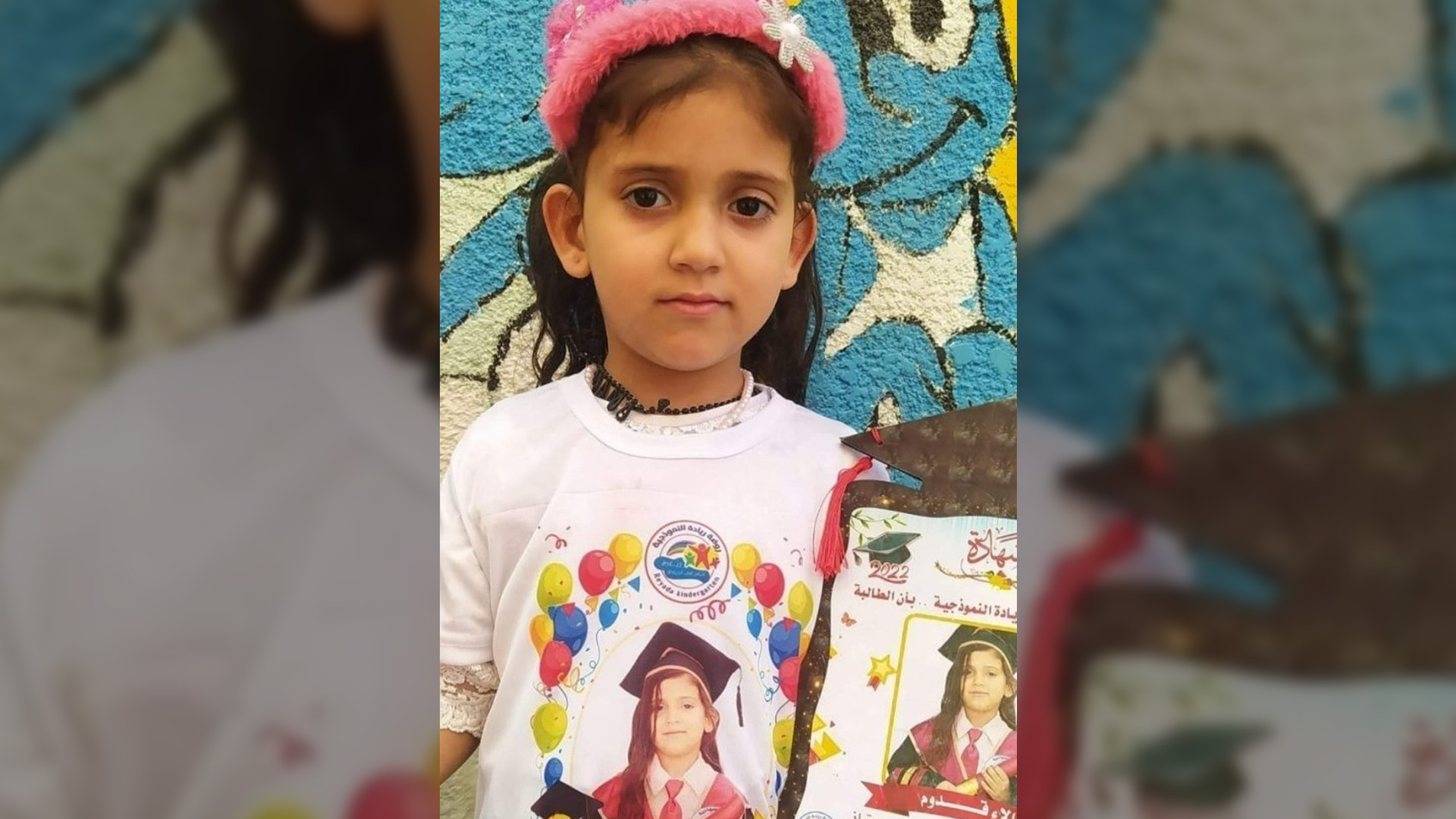
Alaa Abdullah Qaddoum was among the first casualties on Friday following Israel's decision to launch air strikes on the besieged Gaza Strip.
She died on 5 August while she was playing with friends outside her home in the Shujaiya neighbourhood in the northern Gaza Strip.
Her seven-year-old brother and father were wounded in the strike.
"Alaa was an innocent five-year-old playing in the street with her brothers and cousins. What did she do to be killed?" her cousin, Abu Diab Qaddoum, told Middle East Eye.

Momen Muhammed ِAhmed al-Nairab, five, was killed in a suspected Israeli air strike on Saturday on the Jabalia refugee camp in the northern Gaza Strip.
The camp is one of the most densely populated places on Earth and houses more than 114,000 people.
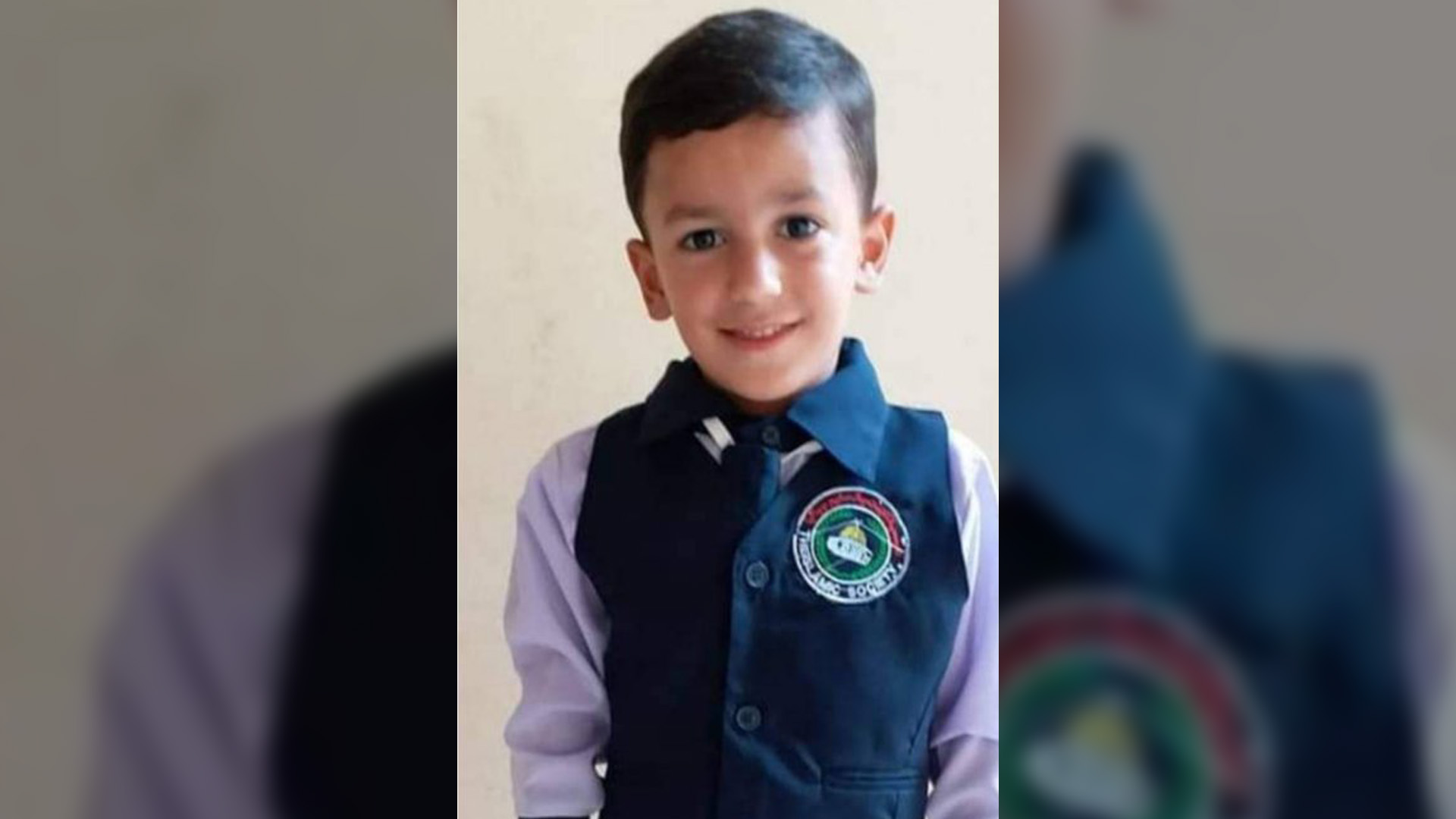
According to documentation collected by Defence for Children International, Hazem Muhammed Ali Salem, nine, was among the four children in the blast on the Jabalia refugee camp on Saturday.
Israel says it wasn't behind the raid, but Palestinian sources say it could not have come from anywhere else.
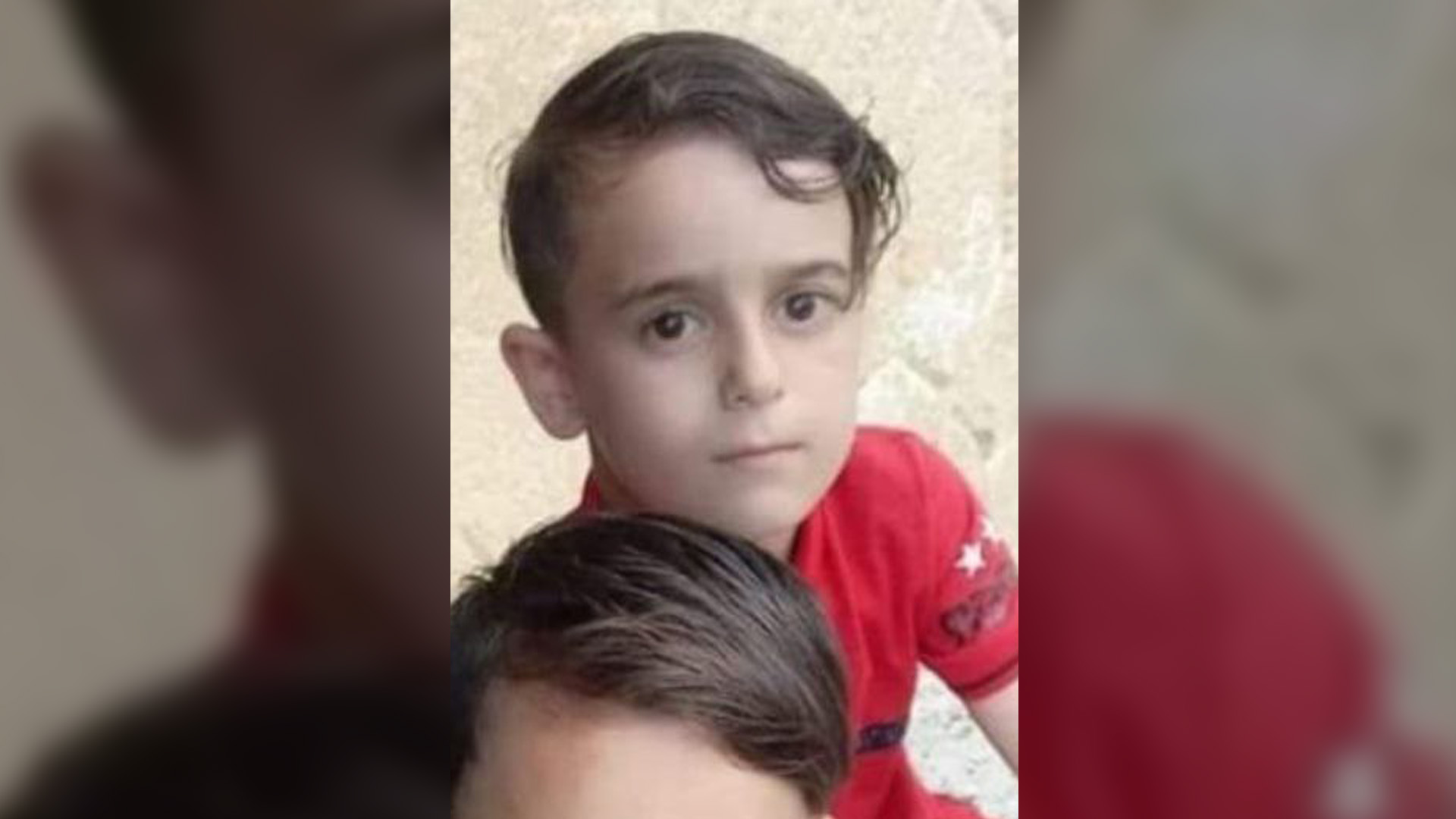
Ahmed Muhammed al-Nairab, 11, was among the four children killed on Saturday when suspected Israeli warplanes struck the Jabalia refugee camp.
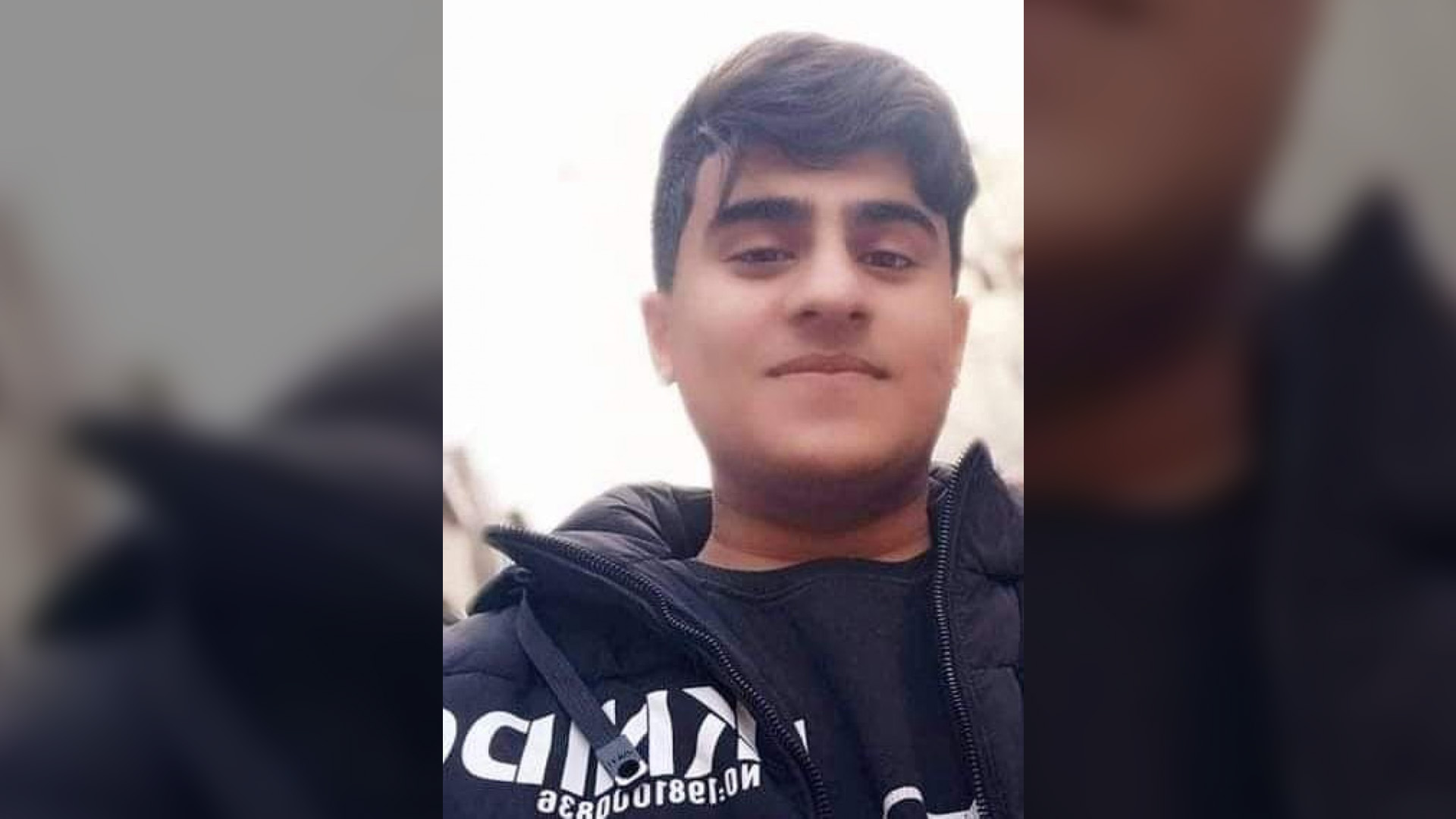
Ahmed Walid Ahmed al-Farram, 16, was also killed on Saturday when suspected Israeli warplanes struck the Jabalia refugee camp.
According to the UN agency for Palestinian refugees (Unrwa), the camp suffers from high unemployment, regular electricity cuts and a contaminated water supply.
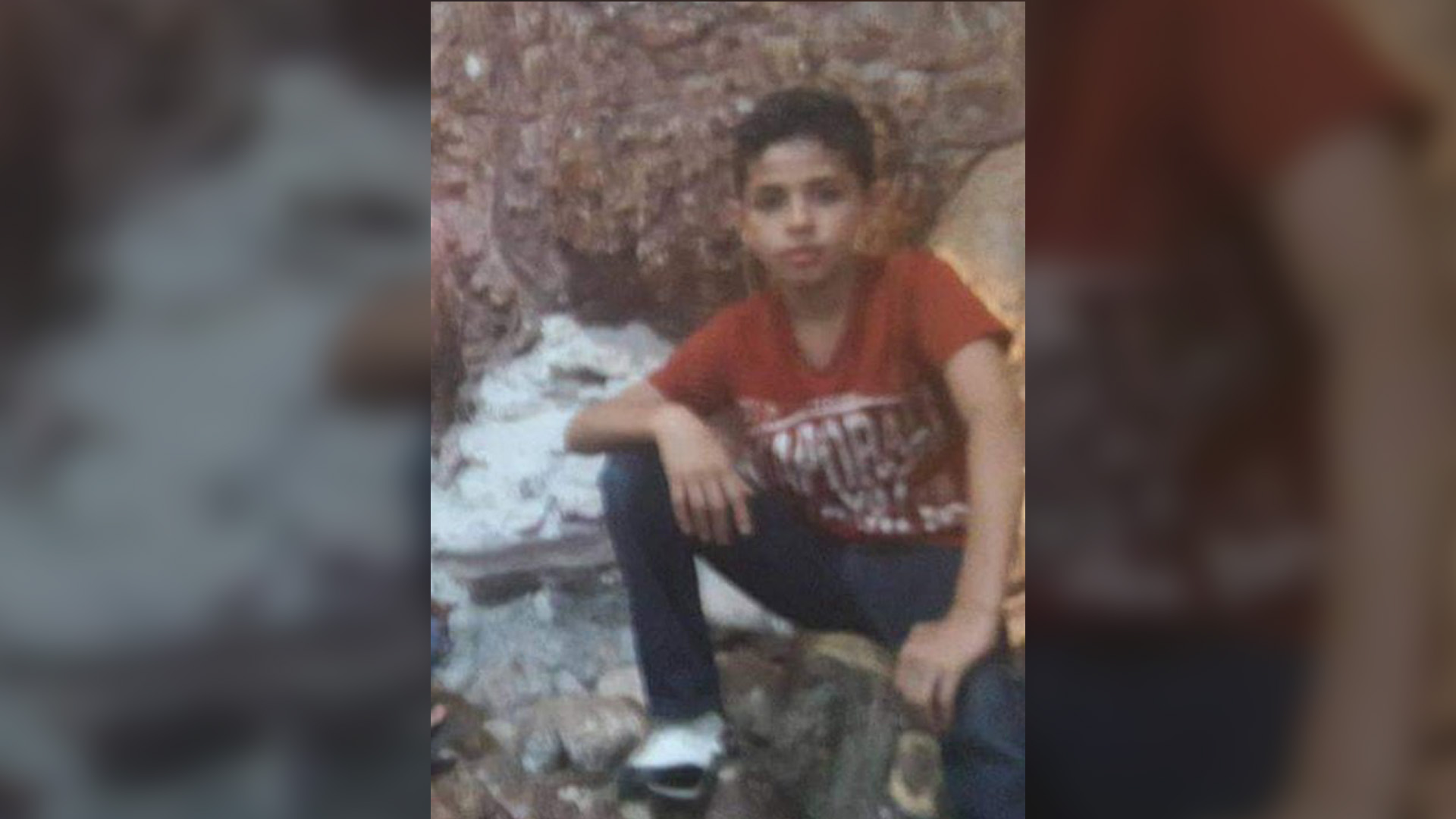
Muhammed Iyad Muhammed Hassouna, 14, was killed when an Israeli air strike targeted his home in Rafah in the southern Gaza Strip.
Adeeb Ahmad, an eyewitness to the attack, told MEE that at least eight people were killed in the raid.
"The house was hit without any prior notice," Ahmad said. "Homes are overcrowded here, housing seven to eight people each, and they are so close to each other, so when one house is hit several houses around it are impacted."
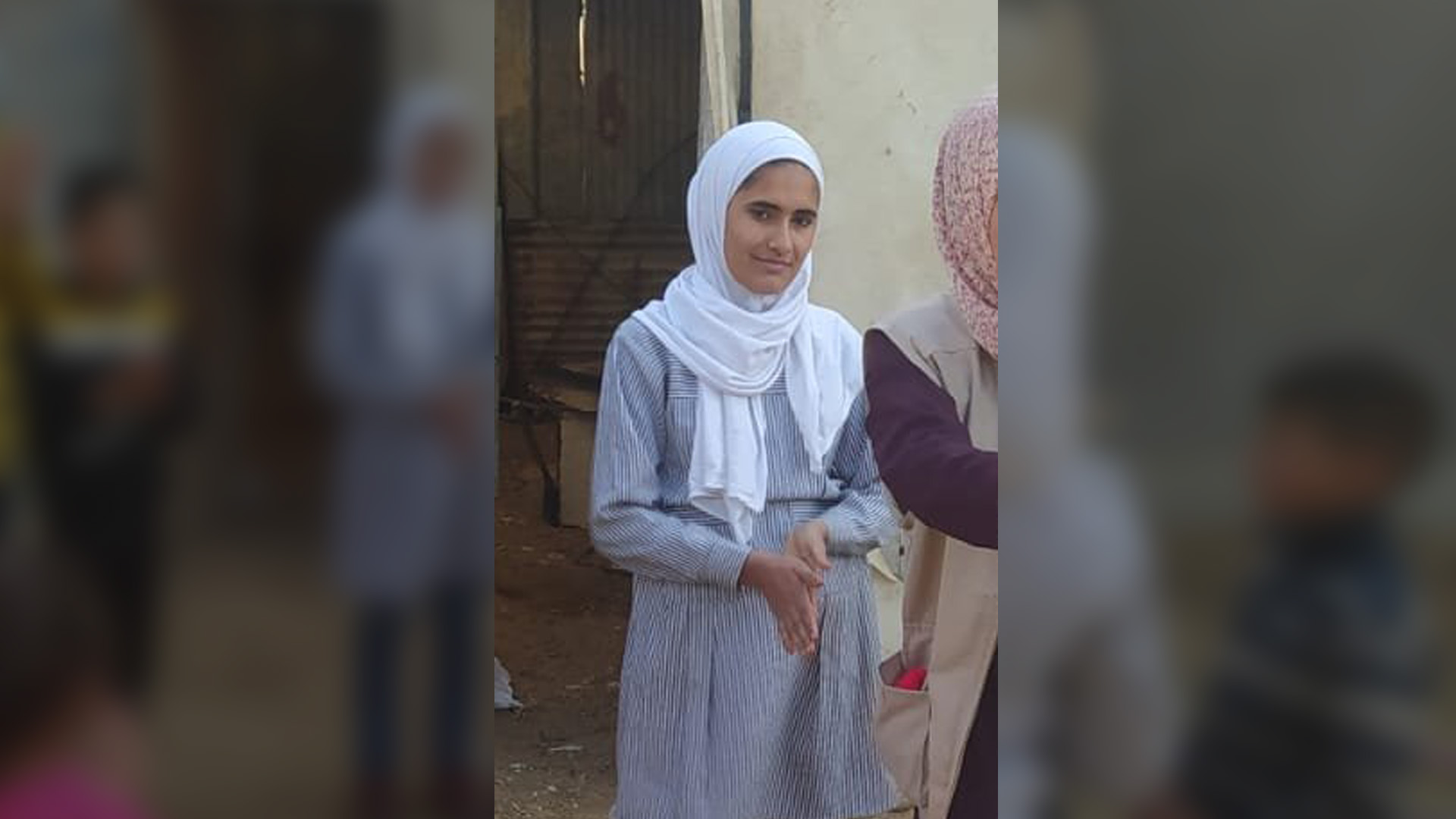
Fatma Aaed Abdulfattah Ubaid, 15, was among nine children killed in the space of 30 minutes, shortly before the ceasefire was announced on Sunday.
Ubaid was killed in Beit Hanoun on Sunday in the northern Gaza Strip.
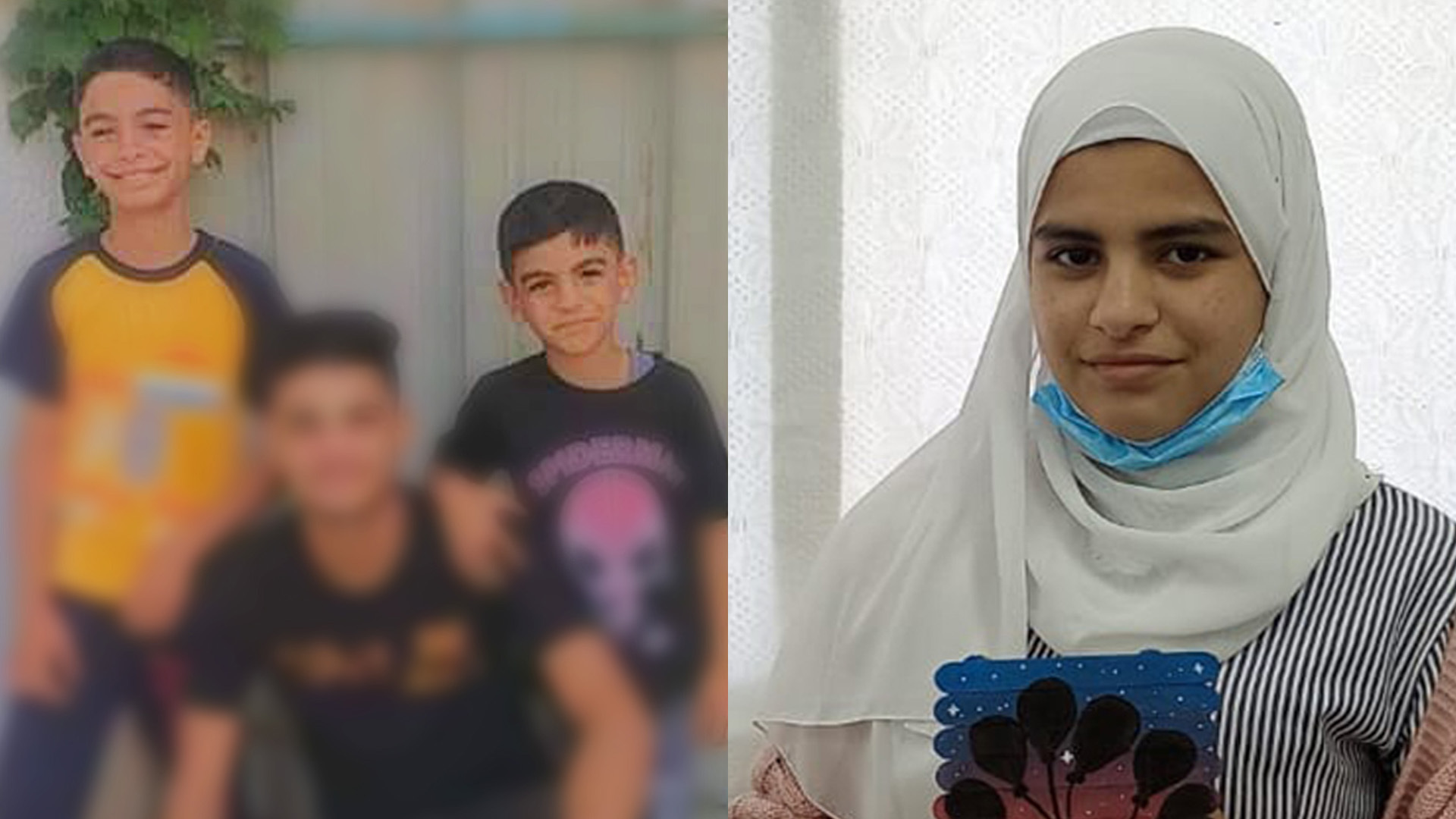
An Israeli air strike on the Bureij refugee camp on Sunday killed Yasser al-Nabahin and his three children, Muhammed Yasser Nimr al-Nabahin, 13 (left); Ahmed Yasser Nimr al-Nabahin, nine (centre); and their sister, Dalia Yasser Nimr al-Nabahin, 13 (right).
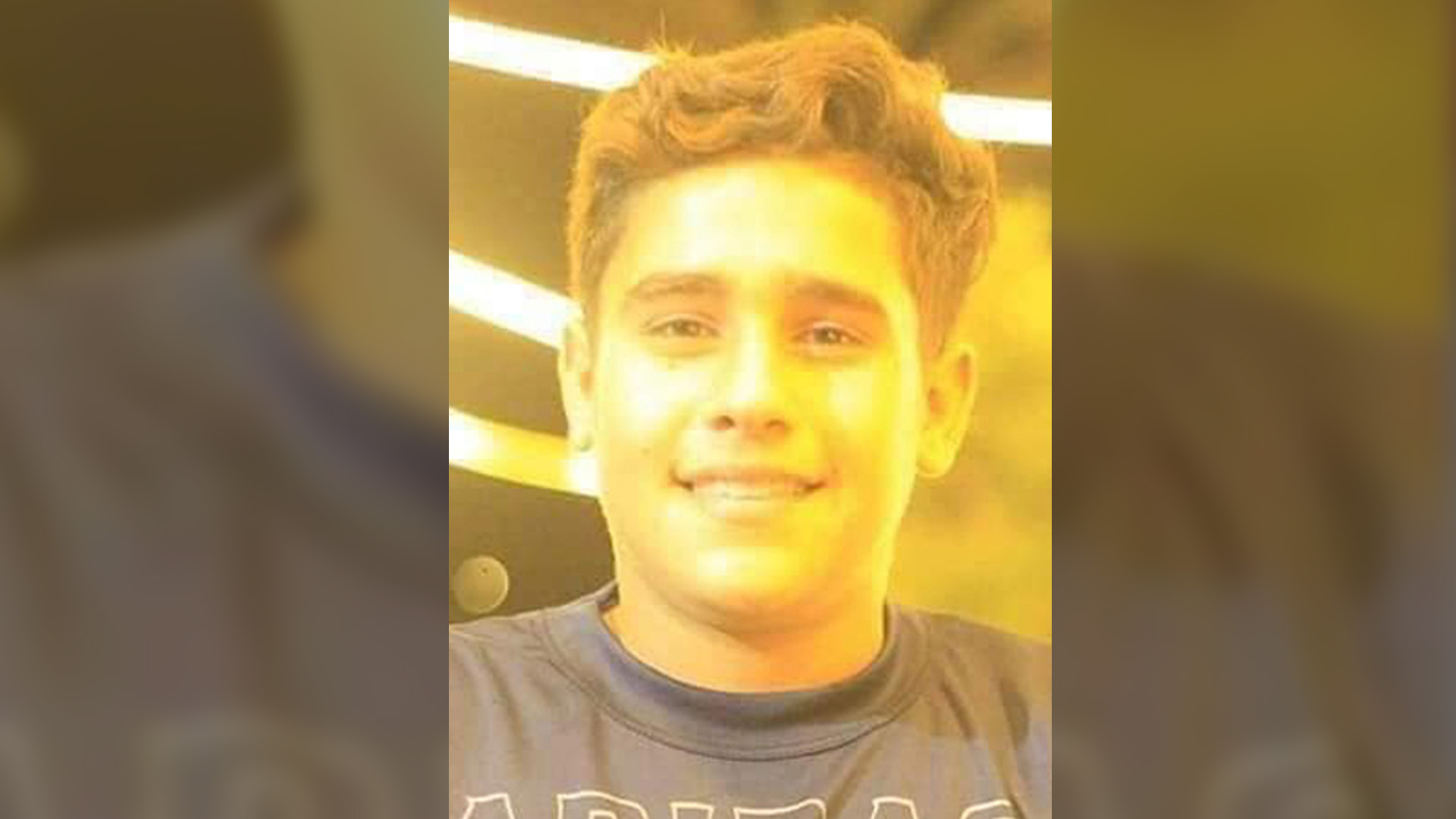
A suspected Israeli air strike on the Falluja cemetery in northern Gaza on Sunday killed five boys as they sat near a grave.
Muhammed Salah Nijm, 16, was among those killed.
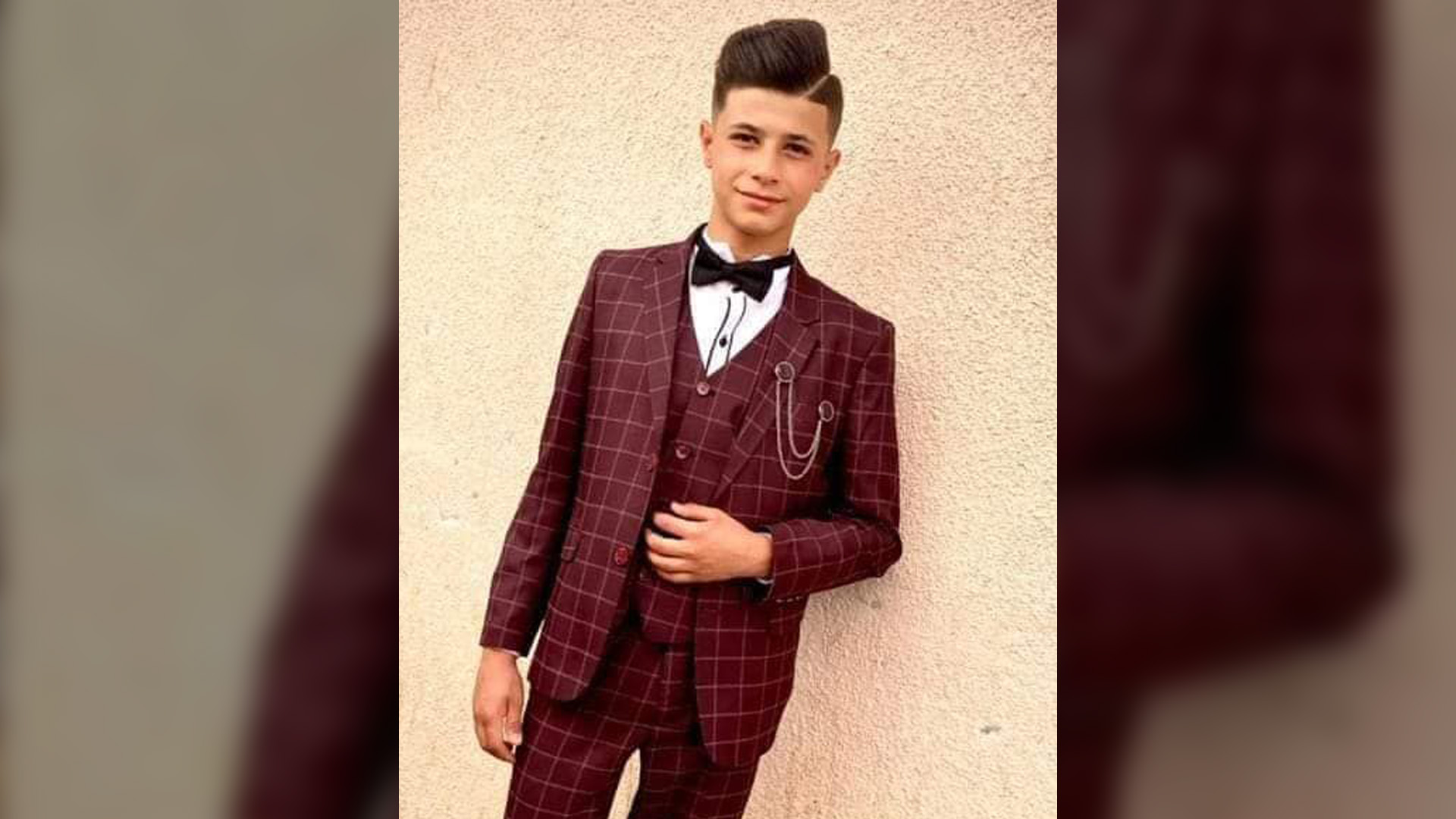
Hamed Haidar Hamed Nijm, 16, was among those killed in Sunday's raid on the graveyard. Eyewitness Mohammad Sami told MEE that four of the boys were cousins and the fifth was their friend.
"They come to sit here every day," Sami said. "This is a safe area."

Jamil Nijm Jamil Nijm was the youngest child to be killed during Israel's offensive on the Gaza Strip. He was only four years old.
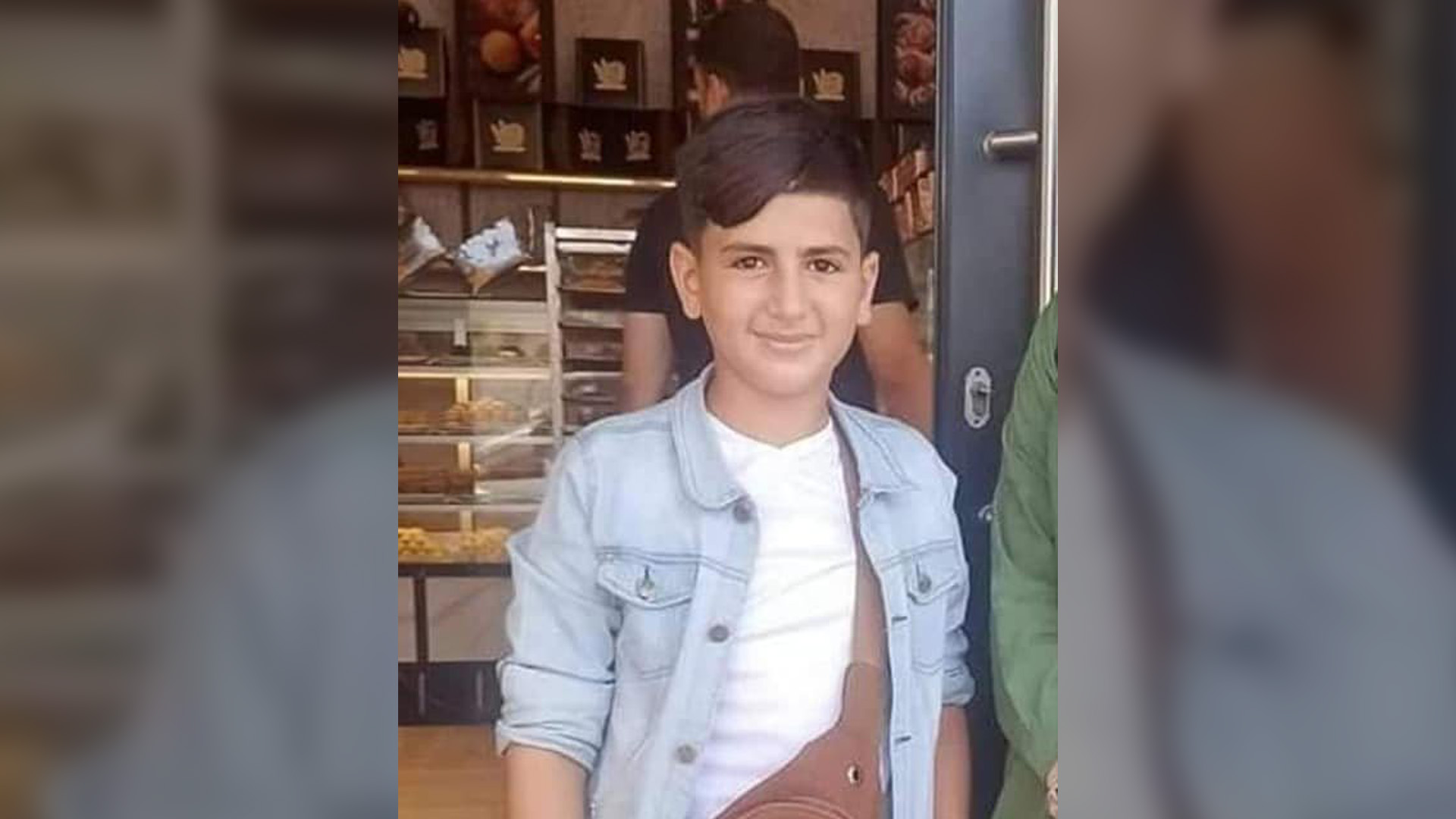
Jamil Ihab Nijm, 13, was the fourth child from the Nijm family to be killed in Sunday's suspected air strike.
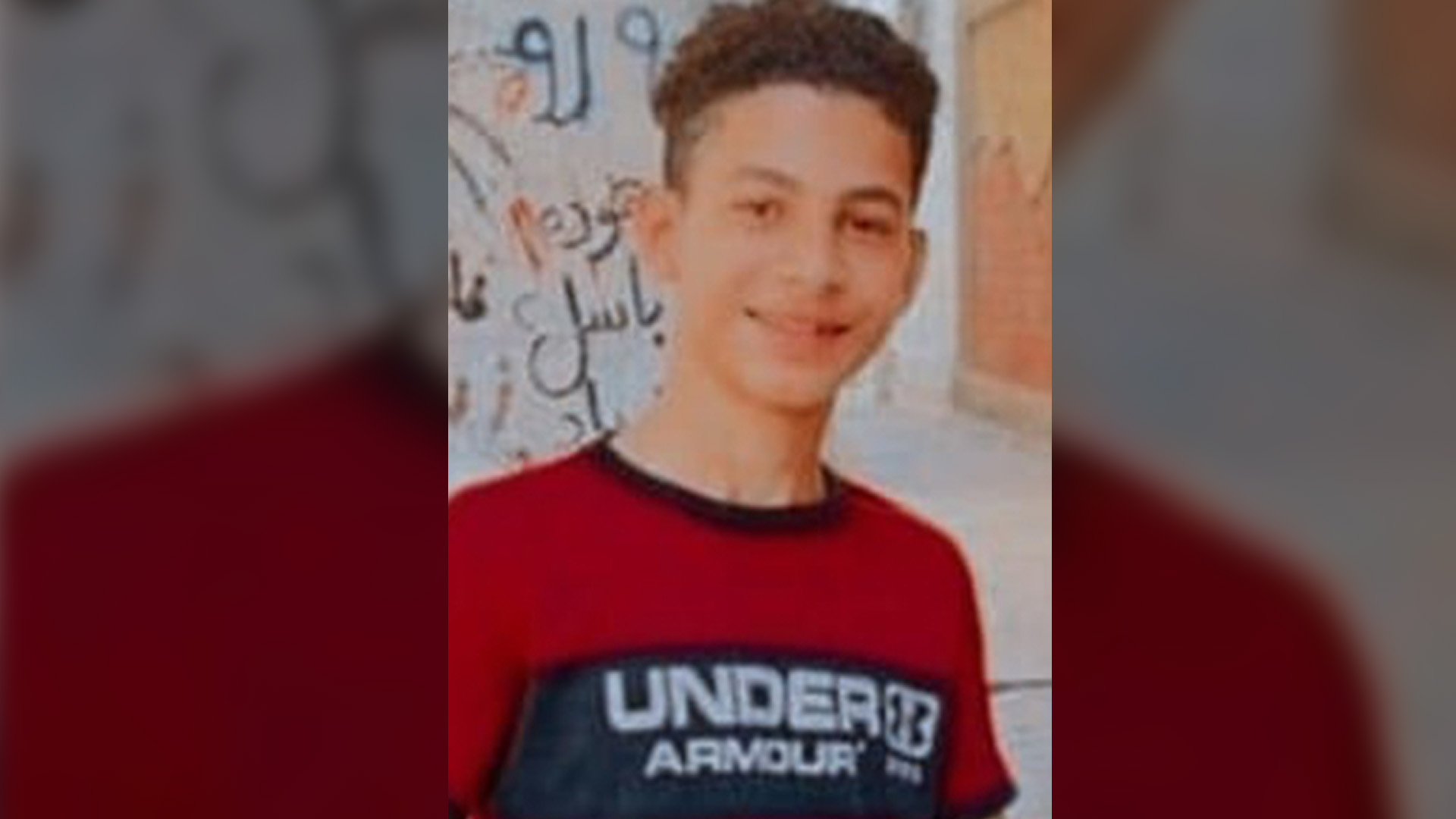
Nazmi Fayez AbdulhadiAbukarsh, 16, a friend of the Nijm boys, was killed in the suspected air strike on the graveyard.
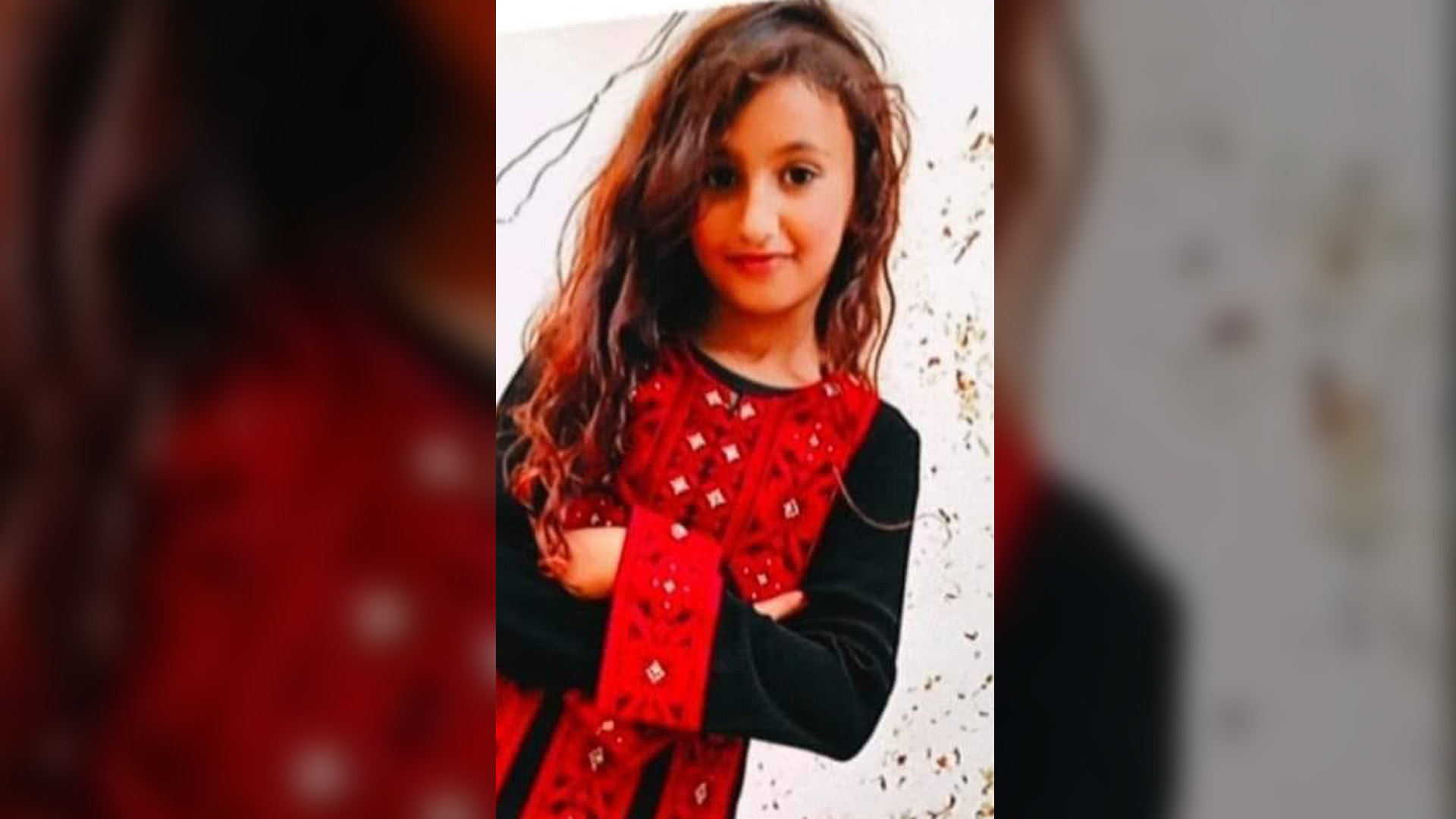
Hanin Walid Muhammed Abuqaida, 10, was injured in an air strike on the Jabalia refugee camp on Sunday but succumbed to her wounds on Monday.
She was 10 years old.
This article is available in French on Middle East Eye French edition.